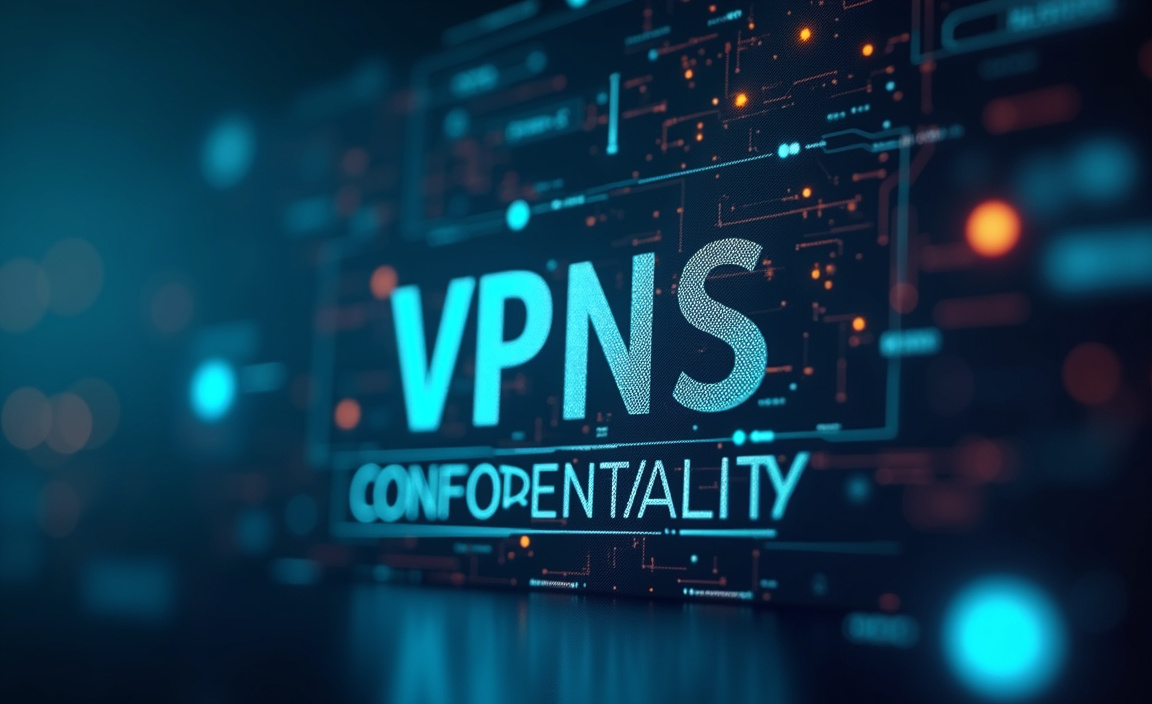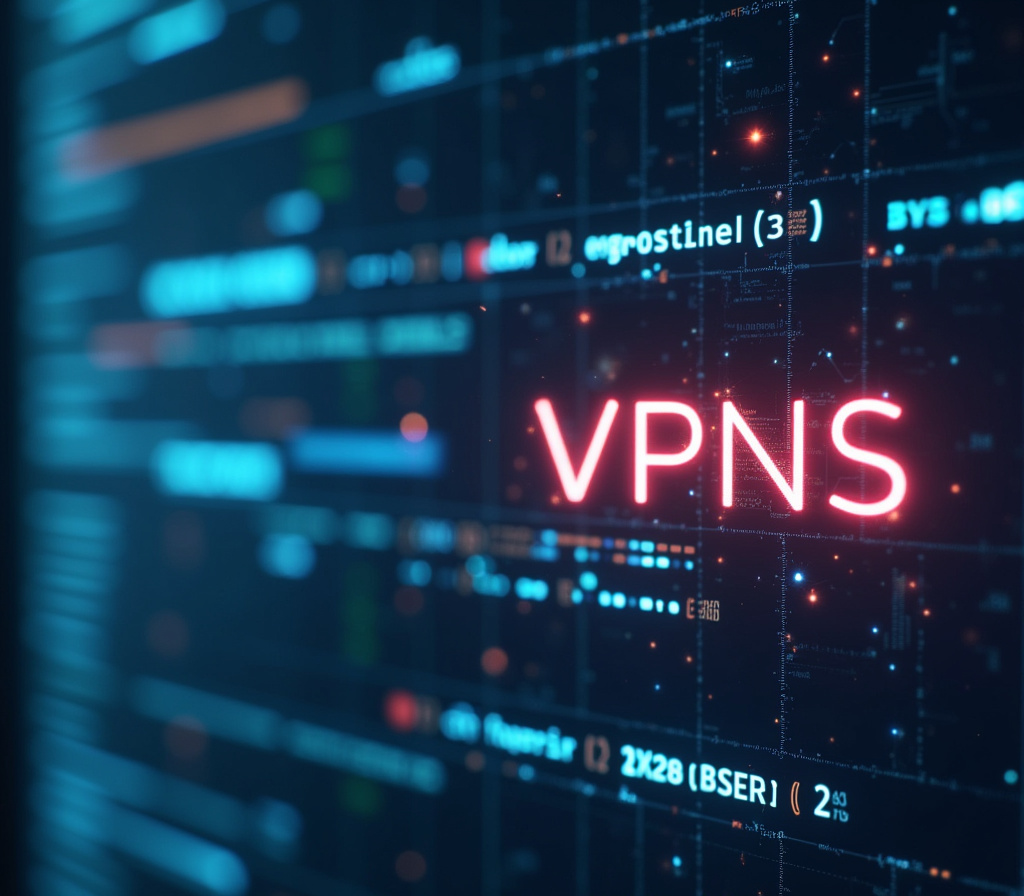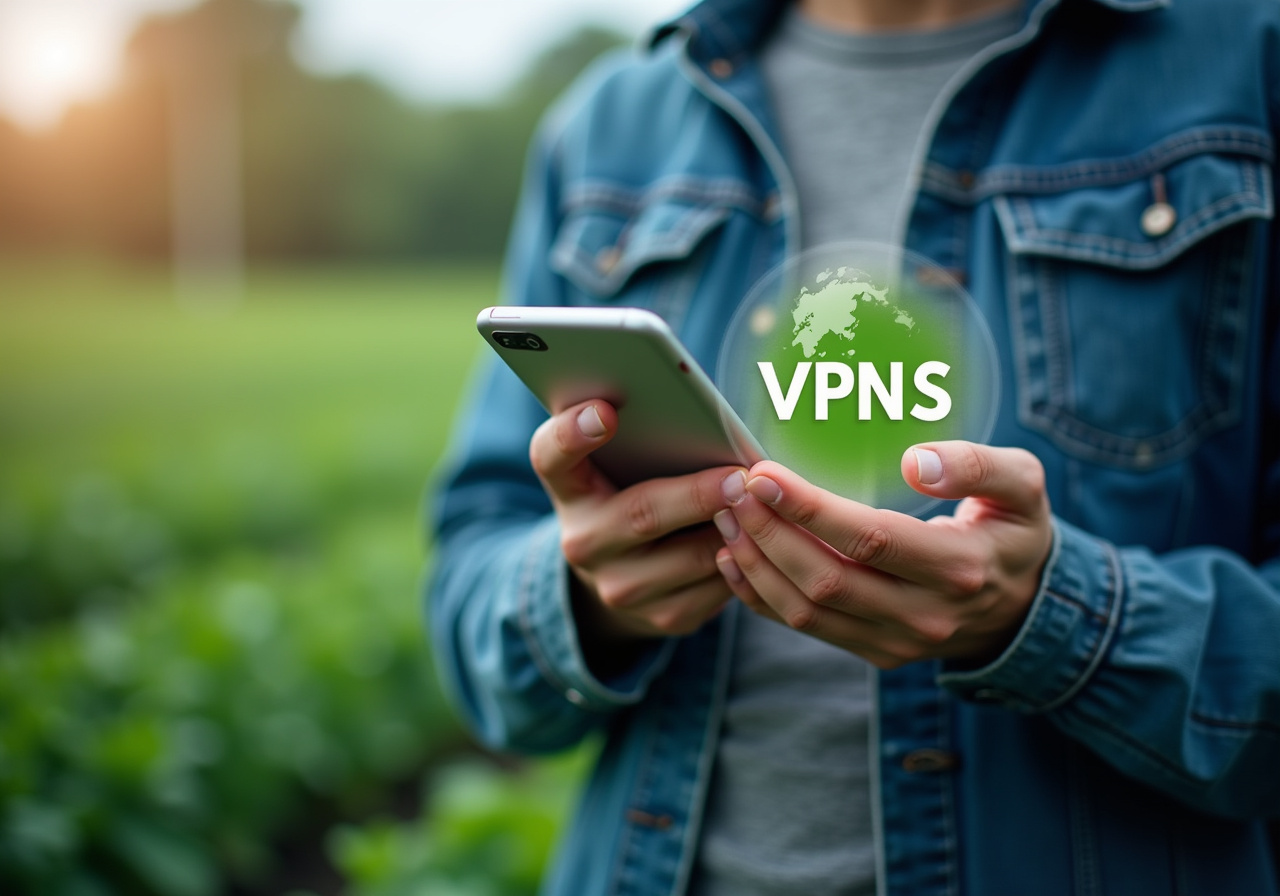VPNs for Research Organizations: Protecting Scientific Data

Table of Contents
Understanding the Crucial Role of VPNs in Research
In today's interconnected world, research organizations face unprecedented challenges in protecting their invaluable scientific data. The rise of cyber threats, coupled with the increasing reliance on digital infrastructure, necessitates robust security measures to safeguard data integrity and confidentiality. A Virtual Private Network (VPN) emerges as a critical tool for research institutions, providing a secure and encrypted channel for transmitting sensitive information, collaborating with global partners, and maintaining the integrity of scientific findings.
This article delves into the significance of research VPNs, the specific security considerations for scientific data, and the essential features that research organizations should prioritize when selecting a VPN solution. By implementing a comprehensive research VPN strategy, organizations can mitigate risks, foster collaboration, and ensure the long-term preservation of scientific knowledge. The importance of scientific security cannot be overstated, as breaches can have severe consequences, including the compromise of intellectual property, the distortion of research results, and damage to institutional reputation.
Data protection within research environments requires a multi-faceted approach, combining technological safeguards like VPNs with stringent data governance policies and employee training programs. VPNs specifically designed for organizations offer enhanced features tailored to the unique requirements of academic and research institutions, providing centralized management, advanced encryption protocols, and compliance with relevant data protection regulations. Selecting the right research VPN involves a careful evaluation of factors such as server locations, bandwidth capacity, logging policies, and the VPN provider's commitment to privacy.
Organizations must also consider the specific research workflows and data transfer needs of their researchers, ensuring that the chosen VPN solution seamlessly integrates with existing infrastructure and supports collaborative research efforts. With the growing complexity of cyber threats, research organizations cannot afford to underestimate the importance of protecting their scientific data. By investing in a robust research VPN solution and implementing comprehensive security measures, institutions can safeguard their intellectual property, foster innovation, and contribute to the advancement of scientific knowledge.
Protecting scientific data involves more than just preventing unauthorized access; it also requires ensuring the integrity of the information, maintaining its availability, and adhering to ethical research practices. Scientific data, encompassing everything from raw experimental results to confidential patient information, is a treasure trove of knowledge and a vital asset for research organizations. This data is the lifeblood of scientific discovery, driving innovation and contributing to advancements in various fields, including medicine, engineering, and environmental science.
However, the value of this data also makes it a prime target for cybercriminals, nation-states, and malicious insiders. A successful data breach can have devastating consequences, leading to financial losses, reputational damage, and the erosion of public trust. In some cases, compromised scientific data can even pose a threat to national security or public health.
Therefore, research organizations must adopt a proactive and comprehensive approach to data protection, incorporating robust security measures at all levels of their operations. A research VPN is a fundamental component of this security strategy, acting as a secure gateway for researchers to access and share sensitive information without exposing it to unauthorized access. The establishment of a reliable research VPN shields the entire research infrastructure from potential invasion, securing the organization's virtual perimeter through encrypted tunnels and secured access points.
Data leaks and the compromise of privacy can also become a problem without the safeguards of a VPN. The implementation of a research VPN is particularly important in the context of collaborative research projects, which often involve the sharing of data and resources across multiple institutions and geographical locations. Without a secure VPN connection, sensitive data shared among collaborators could be vulnerable to interception and theft.
A VPN can also provide secure access to research databases and repositories, preventing unauthorized individuals from accessing or modifying valuable scientific information. Furthermore, a research VPN can help organizations comply with data protection regulations, such as GDPR and HIPAA, which require them to implement appropriate security measures to protect sensitive personal data. By encrypting data in transit and masking the IP addresses of researchers, a VPN can help organizations meet these compliance requirements and avoid costly penalties.
The decision to implement a research VPN is not merely a technical one; it also involves ethical considerations. As custodians of scientific knowledge, research organizations have a responsibility to protect the data entrusted to them and to ensure that it is used responsibly and ethically. A research VPN is a concrete step that organizations can take to demonstrate their commitment to data security and ethical research practices.
Enhancing Project Data Protection with VPNs
The core purpose of a research VPN extends beyond basic online anonymity; it serves as a crucial component in establishing scientific security within a research organization. These specialized VPNs are engineered to meet the stringent requirements of institutions handling sensitive scientific data, facilitating secure and confidential communication and collaboration among researchers, regardless of their geographical location. The primary function of a research VPN is to encrypt all data transmitted between a researcher's device and the VPN server, effectively creating a secure tunnel that shields sensitive information from interception by unauthorized parties.
This encryption is particularly vital when researchers are accessing research databases, collaborating on joint projects, or sharing findings with external partners. Robust encryption protocols such as AES-256 ensure that even if data is intercepted, it remains unintelligible to anyone without the decryption key. In addition to encryption, a research VPN also masks the researcher's IP address, providing an added layer of privacy.
This prevents third parties from tracking the researcher's online activity and identifying their location, safeguarding them from potential surveillance or targeting. Many standard VPNs lack the specific features needed for organizations and scientific workflows, like centralized control, auditing capabilities, and compliance features tailored to research regulations. A VPN for organizations ensures that all network traffic originating from the institution is routed through secure servers, reducing the risk of data leaks and unauthorized access to restricted resources.
This is especially important for research organizations with branch locations or remote employees who need to access sensitive data from various locations. Data protection is further enhanced by features such as split tunneling, which allows researchers to selectively route certain traffic through the VPN while allowing other traffic to bypass it. This can improve performance and reduce bandwidth consumption for non-sensitive activities while maintaining a secure connection for research-related tasks.
Another critical area of research VPNs is integrity safeguarding. Research VPNs often incorporate features to detect and prevent data tampering, ensuring that scientific data remains unaltered and authentic throughout its transmission and storage. Mechanisms such as checksums and digital signatures can be used to verify the integrity of data files, alerting researchers to any unauthorized modifications.
Furthermore, research VPNs often support multi-factor authentication (MFA), adding an extra layer of security to the login process. MFA requires users to provide multiple forms of identification, such as a password and a one-time code sent to their mobile device, making it more difficult for unauthorized individuals to gain access to the VPN. This is particularly important for protecting against phishing attacks and other forms of credential theft.
Beyond the technical aspects, a research VPN also fosters a culture of security awareness within the organization. By providing researchers with a secure and reliable tool for protecting their data, it reinforces the importance of data security and encourages them to adopt best practices for handling sensitive information. The implementation of a research VPN should be accompanied by comprehensive training programs and security awareness campaigns to educate researchers about the risks they face and how to mitigate them.
This includes training on topics such as password security, phishing awareness, and data handling procedures. The integrity safeguarding aspect is especially relevant in scientific research, where the accuracy and reliability of data are paramount. Any alteration or corruption of data can have serious consequences, potentially leading to flawed conclusions, incorrect research results, or even the retraction of published papers.
Research VPNs can help prevent data tampering by encrypting data in transit and implementing mechanisms to detect unauthorized modifications. For example, some VPN solutions offer data integrity monitoring features that alert administrators to any changes made to sensitive files. VPN for organizations should be a central component of a organization-wide information security management system.
Moreover some research VPNs offer features specifically designed to meet the compliance requirements of various data protection regulations. These compliance features can help research organizations demonstrate that they are taking appropriate measures to protect sensitive personal data. For example, some VPN solutions offer data residency options that allow organizations to store their data in specific geographic locations to comply with data sovereignty laws.
Implementing a Secure VPN Infrastructure
One feature of VPNs for organizations is the ability to centrally manage and configure VPN settings across all devices within the research institution. This simplifies administration and ensures that all researchers are using secure VPN configurations. Centralized management also enables administrators to enforce security policies, monitor VPN usage, and generate reports for compliance purposes.
Regular security audits are crucial to identifying vulnerabilities and ensuring that the VPN solution remains effective against evolving cyber threats. These audits should assess the strength of encryption protocols, the security of VPN servers, and the effectiveness of access controls. Research organizations must also establish clear incident response procedures to handle potential security breaches.
These procedures should outline the steps to be taken to contain the breach, investigate the cause, and restore affected systems and data. Employee training is another essential element of a comprehensive scientific security strategy. Researchers should be trained on the proper use of VPNs, best practices for data protection, and how to identify and report potential security threats.
Phishing simulations and other security awareness exercises can help researchers recognize and avoid social engineering attacks. The selection of a research VPN provider is a critical decision that should be based on a thorough evaluation of the provider's security practices, privacy policies, and reputation. Research organizations should look for VPN providers that have a strong track record of protecting user data and a commitment to transparency.
It is also important to choose a provider that is compliant with relevant data protection regulations, such as GDPR and HIPAA, and that offers strong encryption protocols and other security features. A research VPN should seamlessly integrate with the organization's existing IT infrastructure and support the diverse research workflows and data transfer needs of its researchers. This is very important for data protection.
The VPN solution should also be scalable to accommodate future growth and changes in research activities. VPN for organizations must include customer support. Reliable technical support is essential for addressing any issues or questions that may arise during the implementation and use of the research VPN.
Organizations should look for VPN providers that offer 24/7 support and a dedicated support team for research institutions. Implementing a research VPN involves several key steps, starting with a thorough assessment of the organization's security needs and data protection requirements. This assessment should identify the types of data that need to be protected, the potential threats to that data, and the applicable compliance regulations.
Based on this assessment, the organization can develop a comprehensive VPN security policy that outlines the rules and procedures for using the VPN, accessing sensitive data, and reporting security incidents. The VPN security policy should be clearly communicated to all researchers and employees, and it should be regularly reviewed and updated to reflect changes in the threat landscape and the organization's security needs. Once a VPN security policy is in place, the organization can begin selecting and implementing a research VPN solution.
This process should involve a careful evaluation of different VPN providers and solutions, taking into account factors such as security features, performance, scalability, and cost. The selected VPN solution should be configured to meet the organization's specific security needs, including the implementation of strong encryption protocols, multi-factor authentication, and data integrity monitoring. After the VPN solution is implemented, the organization should conduct regular security audits and penetration testing to identify vulnerabilities and ensure that the VPN is effectively protecting sensitive data.
These audits should be conducted by qualified security professionals who have experience in evaluating VPN security. The results of the audits should be used to improve the VPN configuration and address any identified vulnerabilities. Consistent improvements to the system are also necessary.
Furthermore, research organizations should implement a robust vulnerability management program to identify and remediate security vulnerabilities in their IT systems and applications. This program should include regular vulnerability scanning, patching, and security updates. The VPN solution should be integrated with the organization's vulnerability management program to ensure that any vulnerabilities in the VPN are promptly addressed.
Data protection can also lead to the protection of employee privacy in the organization. By focusing on data security overall, individual researchers are also benefited.
VPNs for Services: Securing Online Platforms and Subscriptions
The importance of adhering to strict data governance policies when using a research VPN cannot be overstated. These policies should define the types of data that require VPN protection, the procedures for accessing and handling sensitive data, and the responsibilities of researchers in protecting data security and integrity safeguarding. Data governance policies should also address issues such as data retention, data disposal, and data breach notification.
Clear guidelines and training programs are essential to ensure that all researchers understand and comply with these policies. These policies should be regularly reviewed and updated to reflect changes in data protection regulations and best practices. When using a research VPN, researchers should be instructed to always connect to the VPN before accessing any sensitive data or conducting any research-related activities.
They should also be aware of the potential risks of using public Wi-Fi networks, which are often unsecured and can be easily intercepted by hackers. Researchers should be taught to verify the security of any Wi-Fi network they use, and to avoid accessing sensitive data on public networks whenever possible. The use of strong passwords and multi-factor authentication is also critical for protecting research VPN accounts.
Researchers should be required to create strong passwords that are difficult to guess, and they should be encouraged to use password managers to securely store their passwords. Multi-factor authentication adds an extra layer of security by requiring users to provide multiple forms of identification, such as a password and a one-time code sent to their mobile device. This makes it much more difficult for hackers to gain unauthorized access to research VPN accounts, even if they manage to steal a password.
Regular monitoring of VPN usage is also essential for detecting and preventing security breaches. Research organizations should implement monitoring tools that track VPN connections, data transfer rates, and other security metrics. These tools can help identify suspicious activity, such as unauthorized access attempts or unusual data transfers, which may indicate a security breach.
Furthermore, research organizations should establish incident response procedures to handle potential security breaches that may occur despite their best efforts. These procedures should outline the steps to be taken to contain the breach, investigate the cause, and restore affected systems and data. Incident response teams should be trained to respond quickly and effectively to security breaches, minimizing the damage and preventing further data loss.
Data protection is also important in the cloud. The concept of "least privilege" should form the cornerstone of access control within the research VPN environment. This principle dictates that users should only be granted the minimum level of access necessary to perform their assigned tasks.
This limits the potential damage that can result from a compromised account or a malicious insider. Access control lists and role-based access control mechanisms should be meticulously configured to enforce this principle, ensuring that researchers only have access to the specific data and resources they require. Continuous monitoring of user access patterns and privileges is crucial to identifying and addressing any anomalies or potential violations of the least privilege principle.
In addition to technical controls, administrative safeguards play a crucial role in protecting scientific data within the research VPN environment. These safeguards include policies and procedures governing data handling, storage, and disposal, as well as training and awareness programs for researchers. Clear guidelines on data classification, encryption, and backup should be established and consistently enforced.
Regular security audits and assessments should be conducted to evaluate the effectiveness of these administrative safeguards and identify areas for improvement. The integration of security considerations into the research lifecycle, from data collection and analysis to publication and archiving, is essential to fostering a security-conscious culture within the research organization. By embedding security practices into the fabric of research activities, the organization can minimize the risk of data breaches and ensure the integrity of its scientific findings.
VPN for organizations should be constantly updated.
The Future of VPNs in Subscription Services: Enhanced Security and Privacy
In conclusion, implementing a research VPN is a critical step for research organizations seeking to protect their valuable scientific data. By providing a secure and encrypted channel for transmitting sensitive information, collaborating with global partners, and maintaining the integrity of scientific findings, a research VPN can help organizations mitigate risks, foster innovation, and contribute to the advancement of scientific knowledge. However, a research VPN is not a silver bullet.
It is merely one component of a comprehensive security strategy that must also include robust data governance policies, employee training programs, regular security audits, and incident response procedures. Furthermore, the selection of a research VPN provider is a critical decision that should be based on a thorough evaluation of the provider's security practices, privacy policies, and reputation. Research organizations should look for VPN providers that have a strong track record of protecting user data and a commitment to transparency.
The chosen VPN solution should seamlessly integrate with the organization's existing IT infrastructure and support the diverse research workflows and data transfer needs of its researchers. It should also be scalable to accommodate future growth and changes in research activities. Data protection is best achieved if all systems are working together.
The ever-evolving threat landscape necessitates a proactive and adaptive approach to research VPN security. Research organizations must stay abreast of the latest cyber threats and vulnerabilities, and they must continuously update their security measures to address these threats. This includes regularly patching and updating their VPN software, monitoring for suspicious activity, and conducting penetration testing to identify vulnerabilities.
Continuous monitoring of the dark web and other threat intelligence sources can provide valuable insights into emerging threats and potential attacks targeting research organizations. This information can be used to proactively strengthen security defenses and mitigate risks. Collaboration and information sharing among research organizations are also essential for enhancing research VPN security.
By sharing threat intelligence, best practices, and incident response experiences, research organizations can collectively improve their security posture and reduce the risk of successful cyberattacks. Industry consortia and government agencies can play a valuable role in facilitating this collaboration and information sharing. The future of research VPN security will likely involve greater integration with other security technologies, such as intrusion detection systems, security information and event management (SIEM) systems, and threat intelligence platforms.
This integration will enable research organizations to gain a more holistic view of their security posture and to respond more quickly and effectively to security threats. Furthermore, the use of artificial intelligence (AI) and machine learning (ML) will likely become increasingly prevalent in research VPN security, enabling organizations to automate threat detection, incident response, and security policy enforcement. AI and ML can be used to analyze VPN traffic patterns, identify anomalous behavior, and predict potential attacks.
This will help research organizations to proactively mitigate risks and protect their valuable scientific data. Ultimately, protecting scientific data requires a holistic approach that combines robust technical safeguards with strong administrative controls, comprehensive data governance policies, and a security-conscious culture. By embracing this holistic approach, research organizations can safeguard their intellectual property, foster innovation, and contribute to the advancement of scientific knowledge.
It is a continuous process that demands vigilance, adaptability, and a commitment to staying ahead of the ever-evolving threat landscape. The pursuit of knowledge and scientific advancement relies on ensuring that data and systems are secure and accessible, and VPN for organizations can enable that.
Stay Updated
Get the latest VPN news, tips, and exclusive deals to your inbox.




